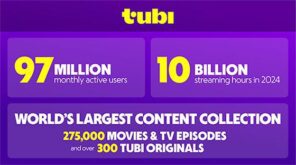By now you’ve probably heard that Final Cut Pro X lacks many features that professionals need, including the ability to load Final Cut Pro 7 projects, multicam support, plug-in support, OML or EDL support and tape output. Judging from the noise on blogs and message boards – and Conan’s editors on YouTube – you can safely say that many professional editors are upset.
You can either assume that Apple totally missed the boat with Final Cut Pro X, or you can assume that they made a rational business decision to abandon the professional market and target iMovie upgraders. The more I think about it, the more I think it’s the latter.
Let’s start with three facts. Many (if not most) professional editors need Adobe Photoshop to do their jobs. Photoshop costs $699, Photoshop Extended costs $999. Many (but probably not most) professional editors also need Adobe After Effects, which also costs $999.
For those who need both programs, you wouldn’t buy them separately; you’d buy Production Premium, which costs $1,699 and gives you those two, plus Illustrator, Flash Catalyst and Professional, Audition, Encore and Premiere Pro. So, you’d have to expect that every FCP editor who needs both Photoshop and After Effects has gone this route, and already owns Premiere Pro.
Few business owners would force their top creative professionals to switch from Final Cut Pro to Premiere Pro just because they already own it, at least right away. But each year when that Final Cut Pro upgrade invoice came due, they’d press the point harder and harder. And they’d certainly point their new folks towards the free solution, which means a declining market for Apple.
Apple had two choices. They could keep developing products like SoundTrack Pro, DVD Studio Pro, Color and Final Cut Pro for a declining market, which makes little sense, or they could borrow what they could from each product and make Final Cut Pro X the ultimate iMovie upgrade, a better Final Cut Express. With 50 million iMovie users out there, that’s clearly a better economic decision. It’s a market that they can and will dominate.
But with Photoshop and After Effects as anchor tenants in the Adobe suite, Apple just couldn’t compete long term in the professional space – it’s tough for even Apple to compete against “free.” And let’s face it, though we love the content creation market, it’s a pretty small sandbox compared to where Apple usually plays these days, so it certainly has little economic or even strategic value.
I don’t think Apple screwed up, at least from a decision-making perspective. They made the only rational decision that they could. I think the Final Cut Pro X launch was executed poorly, but I guess it’s never easy to tell your most enthusiastic supporters that you’ve decided to let them go, or to publicly cede a market to your most high-profile competitor.
PS – for my review of Final Cut Pro X, check out OnlineVideo.net.
 Streaming Learning Center Where Streaming Professionals Learn to Excel
Streaming Learning Center Where Streaming Professionals Learn to Excel







